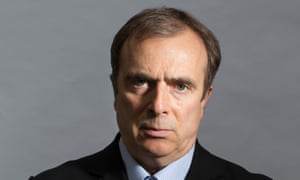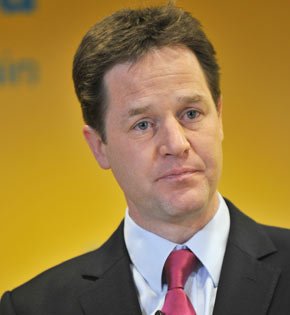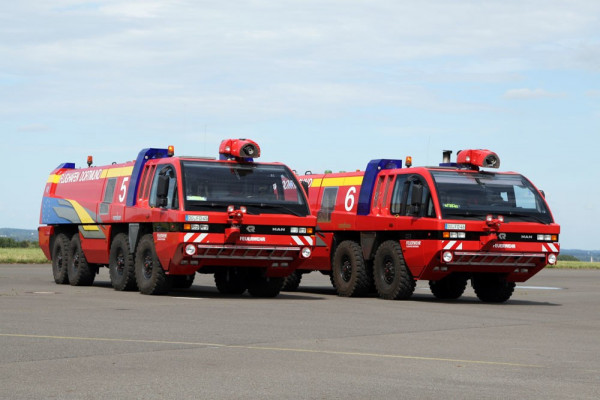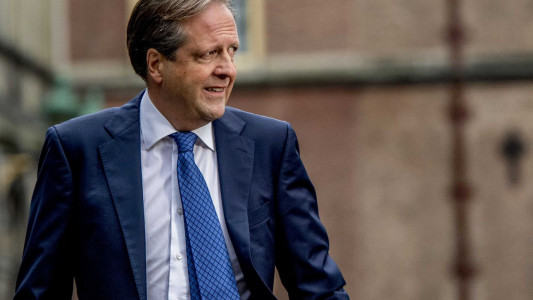The (Re)turn of the Tide
-
Somewhere over Terra Rosarum, 6/7/2020, 2:52pm
Later he would say he never heard the noise. That everything was eerily silent, like a calm before a storm. He remembered the fifteen minutes of agony better than any of the turbulent events that had led to this point, every second, every movement he made, every emotion he felt. He never thought it would happen this way – never. For the last six years, he had thought it would be one of those he aptly termed ‘them’. His enemies.
But in these fatal fifteen minutes, the plane’s engines deafening everyone aboard with sounds reminiscent of the worst Air Crash Investigation episodes (which Artabanos had gleefully concluded never featured Inimician-built aircraft but always a weirdly-constructed Ikea-style Fremetian construction), he thought about what he had done. What he had achieved, the people he had helped, the people he had saved. But, more than anything, on his mind were the people he had ordered killed over the six years since he had acceded to the helm of the nation. Unlike any European national leader, Artabanos had murdered and pillaged his way through the political landscape.
Occasionally interrupted by an overly calm announcement from the pilot, Artabanos reminisced on the last ten years. His initial election to the Provincial Assembly of Terra Praestoris in 2005 had been fair enough – as fair as elections under the old Republic could go. Afterwards, he would always claim his initial 2005 election campaign had been the toughest he had ever fought, mainly because he had not fought any other contests by playing by the rules. Through clever manoeuvring, he had found himself behind the Ducal desk in 2009. Interestingly, the only correct comment made about his time there was the product of the only critical journalist who had ever suspected Artabanos’s real motive: his time as Duke had been far enough away from central power, to be safe, but close enough to exert real influence. The journalist in question did not live to tell the full tale. “What was her name again?”, Artabanos found himself thinking, before a sudden shock rippled through what remained of the fuselage and focused his thoughts once more.
The creation of the Inimician Empire in 2012, orchestrated entirely by his imaginations, had been a resounding success. Emperor William I, whose reign was oh-so-unfortunately cut short by Artabanos’s own conduct, had been a good friend. A loyal friend. One he had not been emotionally capable of killing, but one that had to be eliminated nevertheless. The countless hours Artabanos and William spent in the former’s study at Astro, where the Imperialist rebellion began, had not been unsatisfactory. William had been an intelligent man, but Artie’s insistence on remaining outside the new administration at that moment – his time had not yet come – had not fallen well with William. The new Emperor became cocky, and had to be eliminated, replaced by someone else. But not Artabanos himself, oh no. Not just yet. Someone more malleable worked.

Former Emperor William
-
So Hugh Doyle had risen to the challenge. Good ol’ Hugh. Artabanos had first met him during the preparation works for the 2012 revolution, and he soon proved his ability as an administrator and a demagogue. Despite the huge size of his forehead, Hugh had demonstrated his capability to promote wildly unpopular causes and twist words in such ways that made the most damaging, limiting, and downright wrong policies seem like common-sense solutions. A sudden increase in the noise of whatever remained of the supersonic jet engines temporarily interrupted Artabanos’s thoughts. The Emperor looked to his right: Sir Elbert White was leaning forward, a trickle of blood running down his face. Should Artabanos get up? Did he ever help his friends when they needed him the most?
Hugh’s reign had been marred by domestic and international strife. The separatist Greens had not relented, the international community frowned on every motion passed, ever Act enforced, every Imperial Decree proclaimed in Inimicus. Damage was being done to the creation of Artabanos’s mind, and it soon became apparent he could not rely on a puppet in the Palace. In 2014, he had stepped in.

Former Emperor Hugh Doyle
However, later he would realise he had already made multiple critical mistakes by the time he acceded to the Throne. None so big, however, as the decision to attend this test flight and sending Christopher Strathcylde to the EU Leader’s Summit. Would he know what was going on by now? If so, what would he do? The reputation of the newly-reintroduced Inimician Empire was at stake. His first error, a childlike one, had been to insist escorting Emperor William from the Palace grounds himself, after his “assassination” by Green terrorists. He had been spotted on CCTV, and although almost all physical and digital copies had been destroyed, the journalist whose name Artabanos could no longer remember had somehow seen a copy. It was a secret that led to her death.
The second mistake was his own presence at the abdication speech of Emperor Hugh, whose full acting potential was being utilised to fake a chronic disease at the time. Again, he had been spotted by some attentive critics, who would later find an Imperial Guard team on their doorsteps. He couldn’t resist. His pride got the better of him. And this same pride now whirled him down towards Portus Inimici Aerodrome at several hundred miles per hour, to an almost certain death or permanent incapacity, and for what purpose? What had he achieved with his ambitions? His downfall, and the downfall of many whom he loved.
-
“BRACE, BRACE!”
Artabanos bent forward, and thought about the position he had always seen safety cards on countless flights showing the correct thing to do in a crash, never expecting he would ever be told to use it himself. He never liked others telling him what to do. Perhaps that, then, was the main reason he decided to assume the Emperorship personally in 2014. The Artabanos Foundation had, at that time, been the gracious recipient of millions of Guilders’ worth of unregistered donations from across domestic and international business – unregistered, as Artabanos had decided recording donations should not be a codified law in the new Empire when it was first constituted. He bought himself a Crown. Well, technically he bought himself two thousand returning officers and polling station supervisors, but the effect was the same.
The jet’s descent was marked by hugely increased turbulence – the pilots had clearly lost control of much of the aircraft’s movements and were struggling to maintain a correct path of descent. Artabanos was shaken in his already uncomfortable seat, a far cry from the settee in his Imperial Palace bedroom. He vividly recalled the first time he sat on the Imperial Throne, during his coronation in Patricio Cathedral. The world lay in front of Him. The nation was His.
But not for long. Sooner rather than later, Artabanos had discovered many Imperial Palace and Parliamentary bigwigs had never trusted him, a mistake they soon found extremely costly. A series of complex constitutional reforms, which Artabanos would never have been able to make if not for the support of the two most powerful Inimician families, the Barringtons and the Strathclydes, the Inimician democratic legislature had effectively been curtailed, while retaining a comprehensive façade of popular accountability. However, the Strathclydes and the Barringtons had not been straightforward. Behind Artabanos’s back, they had constructed leaks into the hull of the ship of state. Artabanos’s authority had been like the fuselage of the wreck he was currently sat in: seemingly unbreakable, but secretly about to collapse.
Artabanos’s mind then drifted to what was possibly the most painful episode of his reign. He closed his eyes, and the deafening sounds of the failing engines faded as he imagined the face of the only one he had ever, genuinely loved. The National Imperial Council, stirred by Peter Strathclyde and Max Barrington, had resolutely opposed his proposed marriage to Richard in Spring 2015, and it was not until they did so that Artabanos discovered the two families had planted a time bomb in the Constitution in the form of Article XXV, which considered the Emperor as having abdicated if He contracts a marriage without the Council’s approval. Artabanos had been heartbroken. He had spent countless hours holed up in his bedroom, leading to speculations about illness and even, about death.


Peter Strathclyde (above) and Marquis Maximillian de Barrington
But he had been dead. Dead inside. Behind closed doors, the now suddenly recuperated Hugh Doyle had plotted with the Families, forcing Artabanos to either publish Richard’s story to the whole world, or let him go. After His refusal, the Strathclydes had been after Richard himself, after which Artabanos was very nearly poisoned by His lover. Artabanos then had to let Richard go, as the Families wanted. Yes, He had let him go, but not after smothering his breath with a bedroom pillow. He had never been the same since that night.
-
Hugh Doyle. Ah, if only the aviation board had invited Hugh onto this fateful flight. Artabanos was woken from his imaginative trance by the familiar sound of plane wheels touching down. Would he make it after all?
Doyle’s revenge had been swift and relentless, and most of the troubles and insecurities in Artabanos’s later reign were his doing. If there had been anyone, anyone at all of all people Artabanos had encountered in His life, who he would gladly, without regret or saddened hindsight, and by any means possible, including the most horrendous and torturous, have had killed, it would have been Hugh. Their initial friendship had been intense, but the most intense friendships lead to the bitterest of rivalries. From the time they stood on the battlements together, shoulder to shoulder, during the Imperialist takeover of Telum, they had turned into the type of people sent into the worst of rages just by seeing one another.
And yet, Hugh was still on the National Imperial Council. Technically in a seat Artabanos appointed, too. But ‘they’ would not allow Him to kick Doyle out. They. The Barringtons, the Strathclydes, even the Cocx family. And now here he was, at the end of all things. What would ‘They’ make of what He had created? Would Jeff Speller finally pay for smearing green soap all over Emperor William’s staircase? Would anyone alive today ever see Sir Augustus Barrington in an outfit other than a double-breasted jacket? And, most of all, would Artabanos’s road to power be uncovered after His demise? The suffering, the misery, the deaths – the evidence was still out there to enlighten all.
“Perhaps it’s better this way”, Artabanos thought, “perhaps it was better for none of this to have happened in the first place.”
A shockwave ran through the aircraft as the tyres screeched across the tarmac, and the sight of airfield First Responders rushing to the end of the runway was the last thing Artabanos saw before blacking out.

-
‘How bad is it?’
‘He’s got severe third-degree burns along much of his side, Your Excellency. Five broken ribs, three cracked ones. Right arm broken in three places, left leg in two. Possible damage to the central nerve column, not to mention the potential for brain damage, and huge emotional trauma if he does pull through.’
‘Will he? Pull through?’
‘Did you want my honest assessment, Your Excellency?’
Silence.
‘I’d say the odds are 70-30 against him.’
Wilfred Cocx felt the colour fade from his face, and the ICU doctor he had just spoken to appeared to see it go, as well. He bade Wilfred sit down, and went off to get the old political warhorse a large dose of Dextro Energy. Former Prime Minister under Emperors William and Hugh, and former Leader of the Union of European Conservatives Wilfred Cocx, Imperial Councillor, was no stranger to crisis. Indeed, he had caused many himself. Yet this was different. Cocx’s entire political being, every fibre of his diplomatic and law-making position, was inherently interwoven with the status, the persona, and the popular mandate of Emperor Artabanos.
Wilfred’s political experience was unmatched around the Empire, his expertise was sought-after and his concession-building unparalleled. Where Wifred was, there was an agreement. And this was a position he cherished, it did not much matter to him what particular role he occupied, as long as he could use his skills for the good of the Realm, the Empire, and the Emperor. He had never had to accept the position of Imperial Councillor, technically a demotion from his former position as Prime Minister, but he had. He had because he was loyal to the Emperor. He had, because he loved Him.

His Excellency Wilfred Cocx ICYes, Wilred was aware of the means by which Artabanos has acceded to - or some would say, usurped - the Throne. Yes, he was aware of the civil strife that had followed His accession, and indeed, Wilfred had himself not been spared the pressure and the money-backed voices of unreason issuing dictats in the corridors of the Imperial Palace. The same voices had led his support for Artabanos to waver during the Article XXV forced abdication procedure which some Councillors had launched against the Emperor - and he had never forgiven himself for taking part.
So Wilfred was attached to Artabanos from an emotional point of view. However, he had also shared in the Emperor’s darkest and deepest secrets, heard Him speak for hours on end about the electoral tactics He used, listened to Him speak lovingly about some, less than lovingly about others, and with hatred about most. Wilfred was as complicit as anyone in the Empire. His political journey would make a rapid turn onto a descending slope if Artabanos passed here and now, with so many loose ends untied. Cocx would find himself veering down the mountain of court cases and inquiries to land straight into the final destination of a jail cell, or possibly worse.
Worse fates, after all, had been assigned to Artabanos’s former friends and enemies. A worse fate had befallen Emperor William, purged to within an inch of his life and now living out his days in total seclusion, mangled, incapable, in an underground facility. Worse fates had resulted for Rita Fortuyn and Gerard Sergent, the Imperial Councillors responsible for the Article XXV procedure; last Wilfred heard, what was left of them was housed in the same bunker where William lived. Or rather, existed. What those three were going through was not to be called living. They had ceased to live long ago. Their lives had ended when they had defied their Emperor.
-

Imperial Palace, Telum"Wilfred, welcome. Please, sit."
Marquis Maximillian de Barrington gestured his colleague, his rival, to a chair in his lavish office in the north wing of the Imperial Palace. Moments later, Max's brother Augustus, fresh from the latest session of the European Council, which Max had heard had been "gopping", entered the room and sat down, arranging the seemingly useless bunch of papers he always carried, in the way he always did.
Max and led the Barringtons, one of the most powerful and capable Inimician political families. Together with his brothers Sir Augustus, Inimicus's European Councillor, and Sir Jonathan, the acting Chancellor of the Treasury, Max competed for power with the other - in his eyes, lesser - families and cliques in the Imperial Palace and Diet. In his capacity as Imperial Consul, Max held significant - and, importantly, ill-defined - powers, which he used solely, and efficiently, to further the interests of his family. in this, he was opposed primarily by the Strathclydes, particularly by his Imperial Consul counterpart Lord Christopher Strathclyde, whose relationship to Max could unironically feature in the most niche type of action movie. On the few occasions they spoke, they were openly, yet euphemistically, hostile, and used innuendo after innuendo to describe what their next actions would be. Christopher was usually aided by his brother Peter, a junior Justice minister, or Aedile, whose influence over Inimicus's judiciary had often worked against Max effectively.
The other main contender to the Throne-behind-the-Throne was the man sitting in front of Max right now. Wilfred Cocx, his brother James Cocx, also an Imperial Councillor, and Lynda Cocx, a so-called People's Tribune (a function Max had nothing but disdain for: a title with some undefined powers over an undefined number of people - rather like his own function, and therefore dangerous.) Wilfred Cocx was one of the most popular politicians in the Empire - a man of immense prestige, vast knowledge, and hugely clever political maneuvering. Although the other Cocx siblings were sideline figures, lurking in the shadows and showing their qualities only when situations demanded those qualities to be shown, Wilfred made up for this all by himself - tenfold.
"Thank you, Max. I'm sure you're well aware of the situation that made me travel from the Emperor's bedside in Portus Inimici today. I am the Emperor's first Imperial Councillor. The Imperial Council consents to me taking over. Your snide, slimy, usurping power-grabbing is so blatantly obvious I'm surprised it's come from you. I'm here to tell you to drop it."
"What did you honestly expect my answer to be, Wilfred? That I'll just throw the hat in the ring and give up? We are quite alike, you and I - we must work together at this... this extraordinary time."
"You speak of this crisis as if it's all a game to you, don't you. As if you brought down the plane all by yourself, with your older, senile brother by your side." - Wilfred pointed at Sir Augustus, who paused in the middle of his biscuit-eating maneuvre - "And that it is now up to you start picking up as many of the powers that lie unguarded in the field as you possibly can."
"I have morals, Wilfred, I'm acting on behalf of the interests of the Inimician people."
"The interests -- and who do you think you are to know what those interests are? You read the latest tweets on the Nuntius Inimici feed and that gives you a direct line to start obstructing our legislature and our constitution?"
"Sometimes the end justifies the means, Wilfred."
Max immediately realised he was no longer in charge of this conversation, even though he had initiated the occasion. It didn't help that Augustus, who was no doubt jetlagged - as he constantly was these days - didn't contribute a single word to the carefully pre-arranged dialogue the Barringtons had planned. Max's plot had foundered within a second of starting the conversation, and all he focused on now was damage control. He averted his gaze from Cocx's penetrating eyes when the latter started speaking again.
"The end justifies the means? The end justifies the bloody means? Obtaining a shred of power justifies circumenting the constitution at a time of national crisis? Adding a few more titles to the records of the Barrington family history justifies exploiting a crisis, the magnitude of which we have never before seen in this country? My friends were on that plane, Max. Good people."
"Yeah, well, I should've put you on there and we'd have blown you all out of the sky", Max exploded, and the moment the words left his mouth, he knew he was finished, and all the hard work of the last weeks, months, even years, was now in intense danger of immediate destruction.
-

Imperial Councillor James Cocx"Were those his exact words?"
"Precisely."
"Jesus."
WIlfred Cocx had rushed like he had never rushed before after he was almost literally thrown out of the office of Max Barrington. Wilfred had, as was customary to him, seized the conversation skillfully, and Max had hinted in a fit of rage that he had caused the supersonic jet to have crashed, leading to the deaths of several of Wilfred's political allies and to the grave injury of Emperor Artabanos. Max had used the words "I should've put you on there and we'd have blown you all out of the sky". Most unwise. Wilfred had run over to his brother James's office on the other side of the Palace, and was informing him on what had happened.
Despite the decisive and grave nature of the day at hand, the sun outside was as bright as ever. The Inimician capital, Telum, had experienced an unusually warm Spring, and Summer appeared to have been no different so far. An absence of rain in the provinces caused the large river running through the capital to have almost dried up, sending various environment and government agencies into a panicked frenzy. Autumn would come soon, however - Inimician summers tended to last only a few weeks at most. Winds from the west would begin carrying rain and clouds from the ocean by mid-August, and the famously long Inimician autumns would begin.
"Wilfred? Wilfred?"
WIlfred was shaken up. "Yes, sorry. The way I see it, we have two options. We go public, or we go... non-public..."
James appeared to ponder this choice for a while - he always pondered by adjusting his tie, his suit buttons, or the small Imperial Councillor pin he wore on his lapel. Ever since both he and Wilfred were young, the brothers had been a closely-knit band; they both knew how the other worked, they knew each other's strengths and weaknesses, and, most importantly, they recognised each other's quirks and ticks. Entire conversations could be had between them without a word being spoken, an immensely useful trait inside the Imperial Council chamber, and beyond.
"We haven't the evidence to go public", James finally said, "We must take the other route."
"So be it", Wilfred Cocx answered, and extended his hand to his brother. The pair looked each other in the eye, hands clutched, when Wilfred said, "For the Emperor."